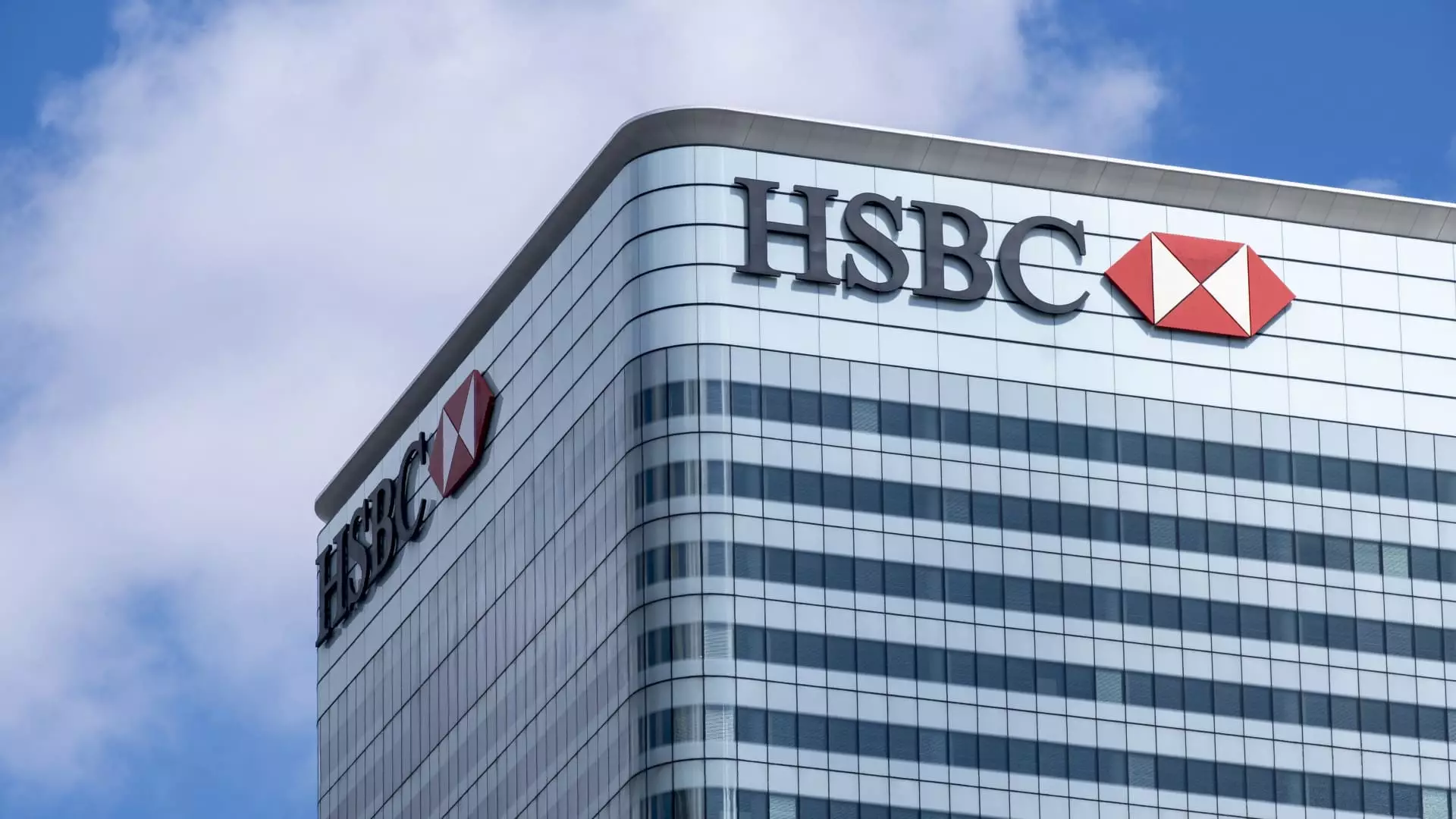HSBC Holdings, recognized as Europe’s largest banking institution, has recently revealed promising financial results for the third quarter of the year. With a reported pre-tax profit of $8.5 billion, the bank’s performance surpassed analyst expectations by a noteworthy margin. Analysts had anticipated a profit of approximately $8 billion. This marks a substantial 10% increase compared to the same period in the previous year when profits stood at $7.71 billion. Such an increase is indicative of not only HSBC’s resilience but also its ability to navigate economic challenges effectively.
The bank’s revenue also reflected this upward trajectory, hitting $17 billion, which eclipses last year’s figure of $16.2 billion. This 5% growth appears to be grounded in the robust performances of its wealth management and personal banking divisions, sectors that are increasingly vital to the bank’s overall strategy. The rise in profits and revenue speaks volumes about the bank’s operational efficiency and its capacity to cater to a diverse clientele.
In alignment with its positive earnings report, HSBC announced an intention to repurchase up to $3 billion in shares. This significant move raises the total share buyback amount for this year to a staggering $9 billion, with earlier repurchase initiatives in the first and second quarters. The decision to invest heavily in share buybacks not only signals confidence in the bank’s future performance but also aligns with shareholder interests, ultimately enhancing long-term value.
Additionally, HSBC’s board authorized an interim dividend of $0.1 per share, augmenting investor confidence further. Such financial maneuvers underscore HSBC’s commitment to shareholder returns, providing a safety net amid the evolving economic landscape.
Accompanying its financial results, HSBC unveiled plans for a strategic restructuring aimed at enhancing operational efficiency. The bank, effective January, will transition into four distinct business units, including Hong Kong, U.K., international wealth and premier banking, and corporate and institutional banking. This move comes in the wake of appointing its first female finance chief, marking a significant milestone in the bank’s governance.
The restructuring aims to eliminate redundant processes and streamline decision-making, a philosophy that underscores a forward-thinking approach. HSBC’s Chief Executive, Georges Elhedery, emphasized the vision for a “simpler, more dynamic, and agile organization.” This shift is not merely cosmetic; it’s a calculated strategy designed to position HSBC as more responsive and adaptable in an ever-competitive market environment.
While the financial results and strategic decisions indicate a robust trajectory for HSBC, challenges remain. The reduction in net interest margin to 1.46%, below the anticipated 1.56%, draws attention to potential pressures on lending profitability. As the bank commits to its ambitious restructuring plans, it must also navigate these hurdles effectively.
The evolving landscape of global banking will require HSBC to stay nimble, capitalizing on emerging trends and technologies while remaining vigilant against economic fluctuations. Overall, this latest earnings report coupled with strategic changes signals a promising yet cautious outlook for the future, positioning HSBC as a formidable player in the banking sector. As the institution moves forward, stakeholders will be keenly watching to see how effectively it can blend solid financial results with innovative operational strategies.

Leave a Reply